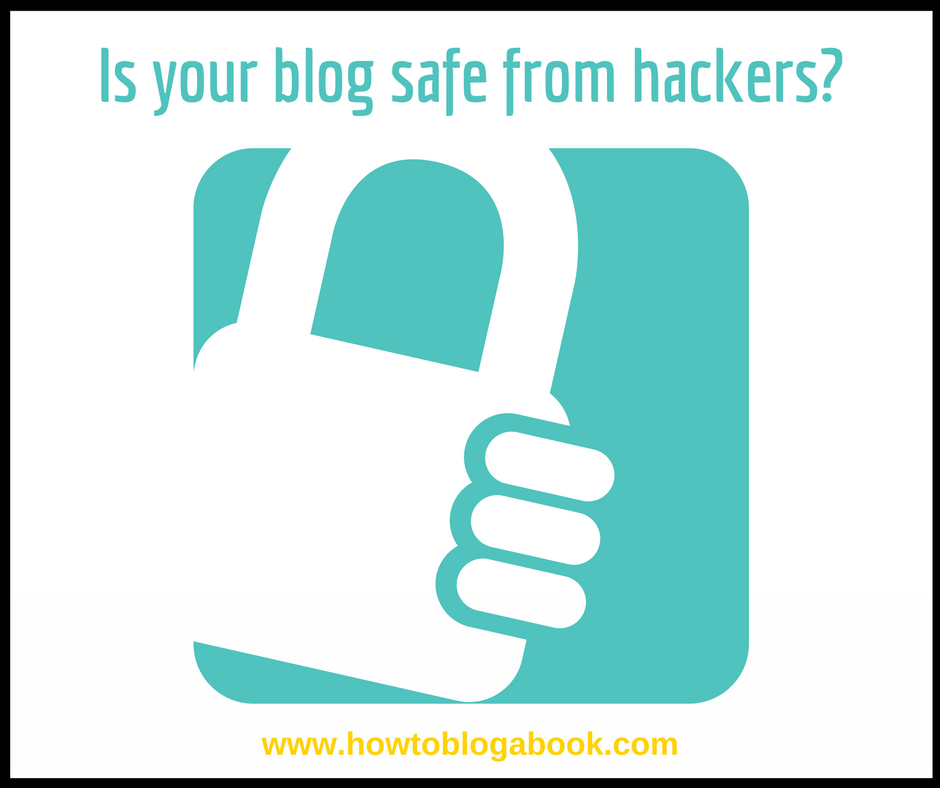I used to tell my clients not to worry about getting hacked. I’d been blogging for more than 10 years plus and had never had a problem. Malware or viruses? Sure. But I’d never been hacked.
Then it happened. Two of my sites were hacked the same day…one of them two more times in the same week!
Now security is one of my biggest concerns, and I tell my clients they should pay attention, too. That’s why today Information Security specialist Thomas Milva offers a guest post that includes his tips on how to keep you your blog safe.
Internet security is a big deal these days, and if you use the web for virtually any sort of business or profit, you need to be aware of the imminent hacker threat that looms almost everywhere. Getting your blog targeted by a cyber attack can have some pretty serious consequences not only for you but for your subscribers as well. The moment that a hacker manages to breach your security, they get access to a lot of information they can use for their malicious purposes.
Naturally, you want to be able to prevent this before it happens, and there are a few preventative actions you can take to protect yourself and your site. Let me share a few steps you can take to increase your overall Internet security and minimize the chances of your blog getting compromised.
1. Passwords
While the importance of passwords might be obvious to many people, ironically it’s also the #1 thing that people tend to forget when they think about protecting their sites. You absolutely must have a strong password to maximize the security of your blog and virtually any online account you possess. This includes your Facebook account, your e-mail, your online bank account and just about anything else that you can log into with the help of an Internet connection.
Easy passwords such as your phone number, birth date or place of residence are out of the question if you want to protect your site. These are the first things that a hacker will try when guessing your password, and you’d be utterly shocked if you knew just how many times this actually works.
To protect your sites, don’t share your passwords with anyone else unless necessary, and make sure that you change them often. It’s a good rule of thumb to replace passwords once every two months, but the more often you do it, the more secure you achieve.
2. Anti-Virus Software
Malware and computer viruses can be a real nuisance, which anyone that’s used a computer for more than a week probably realizes. These viruses are known for hijacking your browser, making you load annoying advertisements, slowing your PC down, and even utterly disabling certain software.
If the hacker has more malicious intents than that, however, things can get a lot worse. Keyloggers can technically be used to steal your passwords by recording all your keystrokes and sending them to the hacker, who can then figure it out rather easily.
The best way to protect yourself from a malware infection and easily remove an existing ones is to install a good anti-virus program to your computer. You can find a lot of fantastic anti-malware software, and most of it is absolutely free (or possesses a free version), so there’s really no reason why you shouldn’t have one installed.
3. VPN
By default, Internet connections can be pretty unsafe, especially if you’re not careful online. It doesn’t take a lot of work for a hacker to compromise your security and gain access to your traffic.
One of the best ways to prevent this is to browse through a Virtual Private Network (VPN) at all times. Connecting to a VPN before accessing the web gives your computer a new IP address and encrypts your connection with a secure tunneling protocol such as OpenVPN or SSTP. This significantly increases the security of your connection and makes it much harder for anyone to eavesdrop on your Internet activity.
4. WordPress Security Plugins
If you use WordPress as the primary platform for your blog, you’ve probably heard of the wide array of security plugins you can install to protect your website. There are some really great ones out there, such as WordFence or BulletProof Security, and implementing them can enhance the overall security of your site and minimize the chances that someone will be able to break in.
5. Protect Your E-mail Address
It’s scary when a hacker gains access to your e-mail address, and once it happens it can be extremely hard to minimize any further damage. Your e-mail address is used to verify almost all of your online accounts, and it also can be used to regain access to them in the event that you’ve forgotten your password. That means that if someone breaks into your e-mail, they’re literally clicks away from gaining access to your blog and any of your other online accounts.
If you want to offer your blog additional protection, consider using an entirely separate e-mail from your usual one for the purpose of blogging.. That way, even in the event that someone does breach the security of your main e-mail address, you know your blog is safe.
About the Author
 Thomas Milva is 28, he lives in Baton Rouge and is a dedicated Analyst of Information Security. Tom also is a consultant writer at wefollowtech.com. He has Italian ancestry and is very fond of his pets, Reggie the dog and his two goldfish.
Thomas Milva is 28, he lives in Baton Rouge and is a dedicated Analyst of Information Security. Tom also is a consultant writer at wefollowtech.com. He has Italian ancestry and is very fond of his pets, Reggie the dog and his two goldfish.


Excellent post here, with great take-away value. I learned a few things that I didn’t know previously. Thanks.
It is very important to properly secure your computer and any applications that you use. I would also recommend making sure that you back up your data in case anything were to occur. Great information, thanks for sharing!
Laurie,
Great advice! I have THREE backups running on my computer at all times, and my web host does a backup daily.
Thanks, Jennifer! I appreciate your comment…and contributions to the blog.